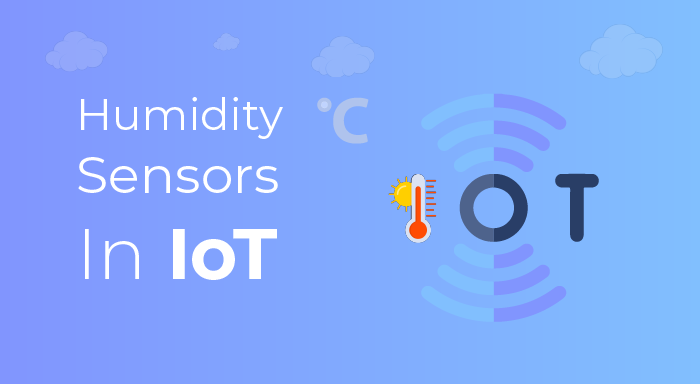Introduction
Humidity sensors have become important tools in line with the advent of smart technology especially in the measurement of moisture in various applications. These sensors are very crucial in providing the right conditions for different environments such as farms, industries, health facilities, and residences.
The use of humidity sensors is increasing with the help of IoT (Internet of Things) technologies as these sensors supply valuable information that helps in decision-making business and enhancing human standards.
What Are Humidity Sensors?
They are commonly known electronic gadgets which are used to detect the moisture level in the air. It transforms the collected data into a usable format that it can present to other systems or gadgets.
In general, these features can assume a wide variety of forms such as capacitive, resistive, and infrared sensors with each type being applicable where factors such as cost, accuracy, and speed are critical.
Types of Humidity Sensors
1. Capacitive Sensors:
This kind of measure is applied significantly because such measures demonstrate high accuracy and stability. These sensors work on the principle that the capacitance of a thin polymer film which is used in the sensor, changes with the moisture that is absorbed in the air.
2. Resistive Sensors:
These sensors operate by changing electrical resistances with any fluctuations in humidity. They are characterized by a good sensitivity as well as cost and are less expensive in comparison with capacitive sensors but their service life is lower than capacitive sensors.
3. Infrared Sensors:
These are accurate, and their response is extremely quick; the detectors utilize the types of infrared radiation for humidity sensing. But they are normally more costly than the regular ones.
4. Optical Sensors:
These devices work on the principle of light absorption; the extent of which determines the humidity and they are very accurate as a rule and cheaper than the infrared sensors.
Applications of Humidity Sensors
Humidity sensors are vital in various fields:
- Agriculture: These sensors help in tracking moisture in the soil hence assisting in better use of irrigation, which consequently improves the production of crops.
- HVAC Systems: It helps to maintain the right level of humidity in buildings and makes air quality and usage of energy more effective.
- Healthcare: It is, therefore, important to regulate the level of humidity in hospitals to be able to reduce the spread of bacteria and to protect some of the delicate equipment which are known to be affected by humidity.
- Smart Homes and Buildings: Such sensors help to keep living conditions optimal and save energy expenses by connecting with smart home systems.
The Role of Humidity Sensors in IoT
As more IoT devices are being created, the incorporation of humidity sensors improved the IQ of systems beginning with smartwatches to cities’ environmental systems.
Due to such features, the sensors presented offer predictive analytics in industrial applications and personal health tracking in consumer products.
Advantages of Humidity sensors
- Improved Health and Safety: By monitoring the amounts of moisture present in the rit, these IoT sensors limit the possibility of the formation of mold and bacteria, thereby creating health-conscious conditions.
- Enhanced Productivity: For industrial purposes, appropriate moisture levels can help reduce damages and downtimes of equipment hence making the process more efficient.
- Energy Efficiency: Some of the ways such as employing an automatic control system using humidity sensors that can save much energy through controlling HVAC and other environmental factors.
Conclusion
In conclusion, humidity sensors are a must-have in our technologically advanced society. This is because they offer accurate moisture measurements in varying applications thus enhancing environmental control and decision making. This is why it is undeniable that IoT to grow in importance in the future, these sensors make for smarter, more efficient, and healthier spaces.
Humidity Sensors In IoT - FAQs
1. What is the main Function of the Humidity sensor?
Humidity sensors are developed for measuring the humidity of the environment with necessary data that is essential for controlling environmental conditions.
2. How are Humidity sensors used in IoT gadgets?
When installed in IoT devices connected through communication protocols in IoT, these sensors are used to gather and send humidity data to the main systems for processing and decision-making, increasing operational smart controls as well as IoT control.
3. Which of the above types of Humidity sensors are cheaper to use?
In general, capacitive and resistive sensors are deemed affordable choices capable of presenting adequate accuracy and performance for use across applications.
4. Can Humidity sensors be placed outside?
Of course, when the housing and calibration are correct, humidity sensors are fully capable of measuring specific outdoor conditions like at a weather station or an agricultural field.
5. What industries Benefit the most from Humidity sensors?
Industries such as agriculture, healthcare, HVAC, and electronics manufacturing benefit greatly from humidity monitoring to improve product quality and operational efficiency.








